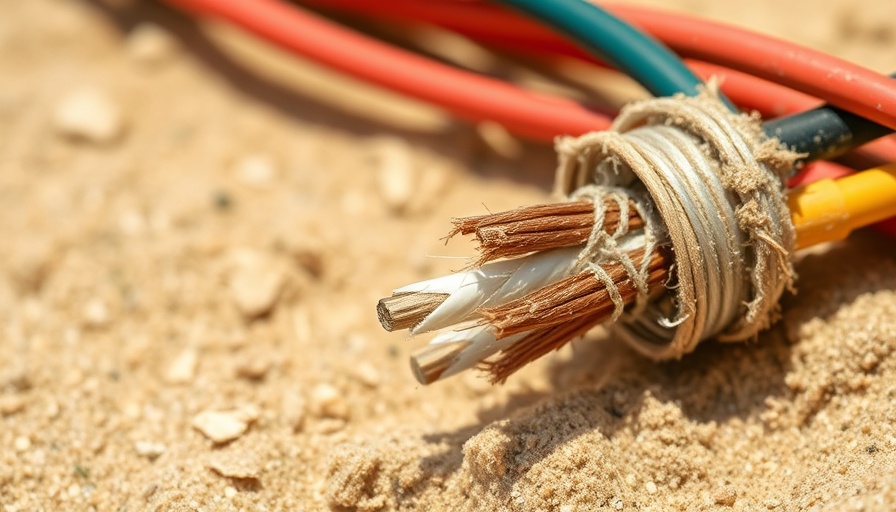
Nigeria's Telecoms Struggles in the Wake of New Law
In June 2024, Nigeria enacted the Designation and Protection of Critical National Information Infrastructure Order (CNII), aiming to safeguard vital telecom assets by categorizing them as national security infrastructures. However, one year on, many question the true impact of this policy as Nigeria experiences unprecedented levels of fiber cuts and network disruptions.
The Stark Reality: A Surge in Outages
Between January and June 2025, Nigeria recorded staggering figures, with 349 major network outages impacting daily communications—a figure that averages out to almost two disruptions per day, as noted by Uptime, a monitoring platform by the Nigerian Communications Commission (NCC). The month of May alone saw 75 outages, the highest recorded this year, indicating a distressing trend for both businesses and consumers reliant on digital connectivity.
Economic Fallout from Telecom Failures
The repercussions extend beyond mere inconvenience; they adversely affect businesses dependent on digital infrastructures. In Lagos, telecommunication companies experienced heavy losses, with an estimated ₦5 billion ($10.8 million) lost due to over 2,500 fiber cuts in 2024. MTN Nigeria's investment of ₦11.1 billion ($24.1 million) for repairs and relocations underscores the financial strains imposed by these disruptions. This situation hampers, rather than aids, the expansion and enhancement of network infrastructures necessary for advancing Africa's tech trends in fintech, AI, and beyond.
Steps Towards a Solution
While the CNII Order aims to protect telecom networks, industry advocates, including Gbenga Adebayo from the Association of Licensed Telecommunication Operators of Nigeria (ALTON), express the need for faster operationalization of the framework. The delays risk more costly setbacks that could stifle growth in an increasingly digital economy.
Recognizing the crisis, some states like Niger have started waiving Right of Way (RoW) fees and fostering partnerships with telecom providers to mitigate further disruptions. Such initiatives indicate an opportunity for collaborative progress and set a precedent for others to follow, helping to navigate the challenging landscape of Nigeria's telecom sector.
Looking Ahead: What This Means for Africa's Digital Future
The ongoing issues with fiber cuts leave Nigerian consumers and businesses wary of service reliability, raising significant concerns regarding the future of work in Africa. It is imperative for stakeholders to act decisively to safeguard telecommunications infrastructure, which is fundamental for achieving digital transformation across the continent.
As this situation unfolds, investors, tech entrepreneurs, and industry leaders must keep a close eye on developments in Nigeria's telecom regulations. Exploring potential solutions, such as technological innovations in fiber protection and smart city initiatives, could pave the way forward.
 Add Row
Add Row  Add
Add 


 Add Row
Add Row  Add
Add 

Write A Comment